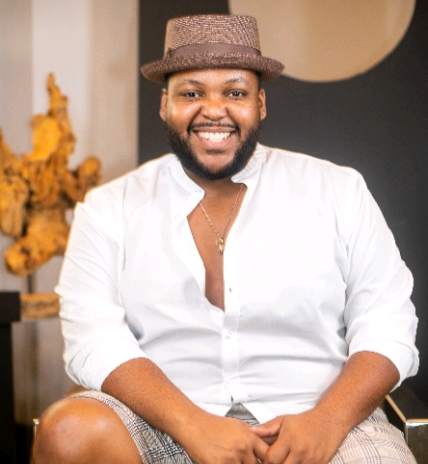HGO Spotlight On: HGO Teaching Artist Stephen Hudson
Stephen Hudson has a passion for music, and a calling to share it with the world. It all began at Houston’s First John Missionary Baptist Church, where he started singing at just 5 years old and, under the watchful eye of his grandfather Pastor Harmon West, directed a gospel choir at the age of 11. He went on to attend the High School for the Performing and Visual Arts, where he met one of his mentors, Rob Seible, the school’s choir director. Seible, also a pianist for HGO’s Bauer Family High School Voice Program, took Stephen’s class to a High School Night performance of La bohème, and he was immediately swept away by its drama and passion. “I was like, I really love this. I loved the style, I loved the music, I loved how it was presented.”
“That’s when I really started wanting to go into teaching kids,” he says, “and letting people get their lightbulb moments like I did.” He went on to pursue a bachelor’s degree in music education at Loyola University before spending 10 years teaching in Houston-area public schools, earning his master’s degree in education at St. Thomas University along the way. He also sung with the HGO Chorus, an experience he calls “wonderful.” He later moved to New York, where he taught at several non-profits and served as co-director of the New York City Youth Pride Chorus. A few years ago, he decided to move back home. Today, in addition to giving private lessons to Houston students, Stephen serves as a Teaching Artist for HGO, sharing stories through words and music with young minds across the city and furthering the company’s mission of ensuring that everyone has the opportunity to experience opera.
Here’s Stephen on his life and career, in his own words:
As a Teaching Artist, I get to go out and either tell people a story or help them create one. If we’re doing a Storybook Opera, we have to tell a story someone else has already made, but with a musical flair. So I get to tell the story a different way. If it’s Sing! Move! Play!, we’re offering little kids an opportunity to understand what Magic Flute is about, and we’re telling them the story through dance, singing, moving, and games.
You have to be able to adapt to every single classroom. We would ask the kids, what’s an opera? And they’d be like, when you speak in another language and you share that with us, and when you wear dramatic costumes. One kid just said, it’s when y’all yell at us real loud! We’re supposed to help students create their own opera, but what if they’ve never even heard opera music before? I’ve got to be able to adapt and say, okay, how can I still get you to be able to talk opera while you’re singing Ella Mai and Ariana Grande? Teaching Artists have to be the bridge between the two. I can talk the language of R&B. I can talk the language of pop. I can talk the language of musical theater. I can talk the language of rock. Because I know all the music, I can say do you see the similarities between this and that? It invites more people over into the conversation of opera.

An opera I feel a personal connection to is Pagliacci. Like the lead, I’ve been a bigger guy most of my life, so seeing how people didn’t necessarily take him seriously but always expected him to be jolly-presenting interested me. I loved when he was just like, I’ve had enough. He went a bit crazy. But it was something that stuck with me. Sometimes you’re always performing. You’ve always got to smile. You’ve always got to be this certain way. And sometimes you’re like, I don’t want to do that today. It kind of freed me a little bit to be like, you don’t have to be these things. And Puccini’s music is gorgeous.
Working for Houston Grand Opera, I can see that the initiative is to be closer to the community. Even in the season selections. Like, we did The Sound of Music. Cinderella is coming. West Side Story is coming. Thinking about these things in the programming season shows that you want more people in the door, and you’re not trying to say that only this type of people can come. It’s saying that, no, we want you all.
The Snowy Day [a 2021 HGO-commissioned world premiere] being here, from an African American creative team, Joel Thompson and Andrea Davis Pinkney—seeing strategic steps of inclusion through the years shows that we want to open the doors to this. For me, that’s something that I deeply believe in: that the arts are completely accessible to everyone, and it’s our responsibility, for those who have the knowledge, to give that knowledge to people, to remind them that yes, you do belong here.
For more of the HGO Spotlight On Series read Part 4.